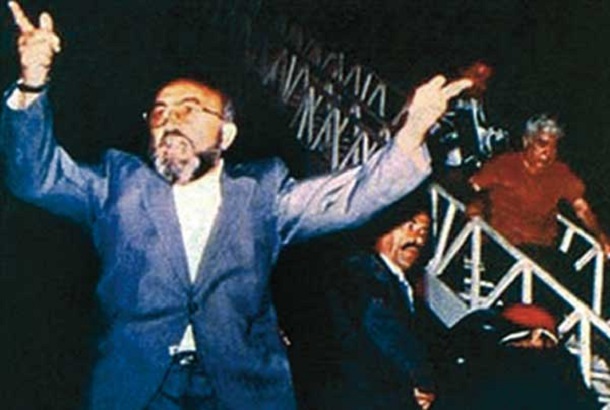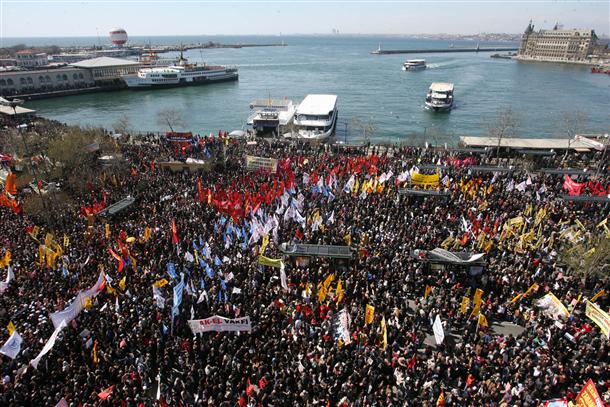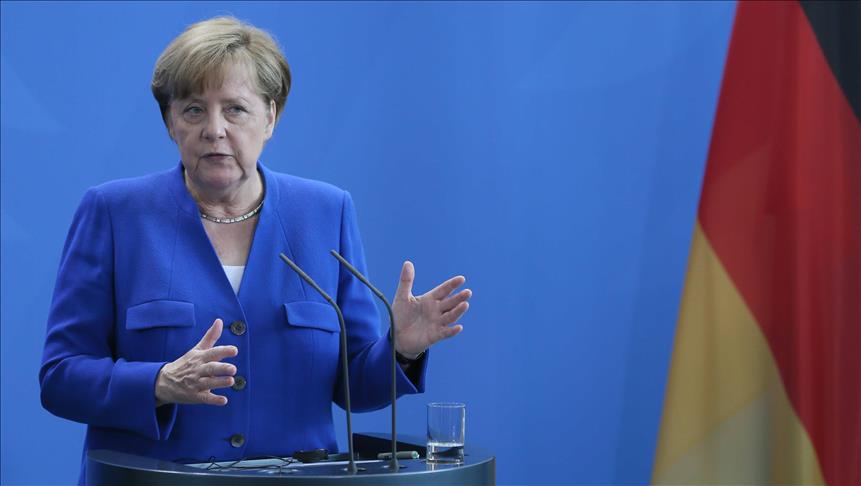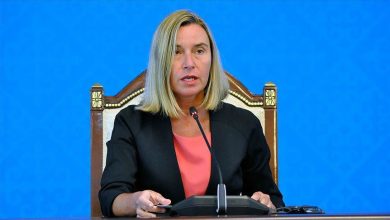20th Year anniversary of Sivas Massacre does not forgotten / Turkey News
20 years ago today 2 July 1993 the city of Sivas in Turkey islamists were burned intellectuals 35 people in front of the whole world.
Thousands gathered in Istanbul’s Anatolian district of Kadıköy to mark the upcoming 20th anniversary of the Sivas massacre, upon a call from Alevi associations.
A number of unions as well as the Taksim Solidarity Platform, a local organization that launched the Gezi Park protests, also attended the demonstration. A representative of the platform made a speech emphasizing that their demands had yet to be met by the government.
The crowd was commemorating the killing of 35 people on the night of July 1-2, 1993, in an arson attack led by a mob on a hotel where many Alevi intellectuals and artists who had come to Sivas for a conference were staying. The controversies surrounding the pogrom have never completely been uncovered and an Ankara court dropped the case on the killings in March 2012, ruling that the charges against the suspects exceeded the statute of limitations. The Madimak hotel has since become a symbol of the discrimination faced by the Alevi community, who have long asked the state to turn it into a memorial museum.
Demonstrators also commemorated Ethem Sarısülük, a young Alevi protester who died after allegedly being shot by police during the Gezi Park events in Ankara.
How had it happened the Sivas Massacre
The Sivas massacre refers to the events of July 2, 1993 which resulted in the killing of 37 people, mostly Alevi intellectuals, and two hotel employees. Two people from the mob also died. The victims, who had gathered for a cultural festival in Sivas, Turkey, were killed when a mob of Salafists set fire to the hotel where the Alevi group had assembled.
The attack took place not long after traditional Friday prayers, when the mob broke through police barricades to surround the Otel Madımak, where artists, writers and musicians had gathered to celebrate 16th century Alevi poet Pir Sultan Abdal. Reportedly angered by the presence of Aziz Nesin, a writer who had translated and published extracts from Salman Rushdie’s The Satanic Verses, the enraged fundamentalists surrounded the hotel, shouting “Death to the infidel!” and threatening the assembled artists with lynching. The hotel was set alight, and the fire claimed 35 lives, including those of musicians, poets, tourists and hotel staff, while assembled police did nothing to intervene. Aziz Nesin was able to escape only because attackers initially failed to recognize him. According to reports, when rescuers eventually realized his identity, he was beaten by firemen while a city councilman, Cafer Erçakmak , from the Welfare Party shouted, “This is the devil we should have really killed.”

The event was seen as a major assault on free speech and human rights in Turkey, and significantly deepened the rift between religious and secular segments of the society. A day after the incident, 35 people were arrested.
Then the number of detainees increased to 190. A total of 124 out of the 190 defendants were charged with “attempting to establish a religious state by changing the constitutional order” and were indicted on charges. The first hearing of the case, publicly known as Case Sivas Massacre, Ankara State Security Court No. 1, was held on 21 October 1993.
On 26 December 1994 a verdict was reached in the case of the 124 defendants: 15 years in prison for 22 suspects, 10 years in prison for 3 defendants, 3 years and 9 months for 54 suspects, 2 years and 4 months for 6 suspects, and the acquittal of 37 of the defendants. Another 14 suspects were sentenced to 15 years in prison.
The remaining 33 defendants were charged with 35 counts of murder. After lengthy court proceedings, the State Security Court sentenced the 33 defendants to death on 28 November 1997 for their roles in the massacre; 31 of these sentences were upheld in a 2001 appeal.
When Turkey overturned the death penalty just over a year later in 2002, the sentences were commuted. Each defendant received 35 life sentences for each murder victim and additional time for other crimes. These 31 suspects are currently the only ones still serving time for the crimes; the other defendants were released or paroled early after completing their sentences.
Each year on the anniversary of the massacre, demonstrators hold protests and vigils to commemorate the victims of the fire.
Many wish to see the hotel, which has since re-opened, declared a memorial and turned into a museum. In 2008 a government minister indicated that it would be turned into an Alevi cultural center, but this has yet to occur.
In June 2010, the Minister of Work and Social Security announced that the money for buying the hotel had been transferred, and that the Ministry would provide additional resources for restoration. Following the court ruling on 23 November 2010, Madimak Hotel has become a public entity for a compensation of 5,601,000 TL to the hotel owners.
Seven other suspects were still on trial until March. Two of the suspects, including Cafer Erçakmak, died while on trial. And in March 2012, the Sivas massacre case against the remaining five defendants was dropped, owing to the statute of limitations. However, this case is still being appealed.
One of the lawyers defending people who are responsible for the massacre of 6 Sivas PM Erdogan’s ruler AKP deputy today.
[adrotate banner=”64″]







